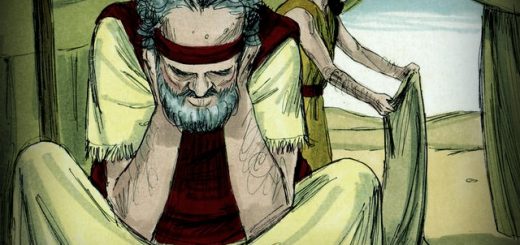The Shaping of a Priestly King

Joseph had been destined for royalty since he was 17 years old. The two dreams of ruling and reigning over his family (Gen 37:5-10) still continued to play in the back of his mind. He never lost sight of them, and as far as he was concerned, this was a prophecy given to him by the Living God (Gen 40:8).
Yet when he first went to his brothers to seek the welfare of those wayward shepherds (Gen 37:14), they could not accept the fact that he would rule over them. Why would they? He was just their annoying little brother.
More than that, the current sons of Jacob were all utterly selfish in their nature. They lived according to the flesh. When Judah had opportunity, we can see that all he desired was his own welfare – selling his brother for money (Gen 37:26), leaving his brothers and mourning father to fend for themselves (Gen 38:1), marrying a wife explicitly condemned by the previous patriarchs (Gen 28:1, 38:2) and sleeping with what he thought was a prostitute after his wife died (Gen 38:15-16).
If Joseph would be the same, then he would be a horrible king. No wonder they didn’t want anyone ruling over them!
But as Joseph gets carried away into Egypt to become a slave, his character is revealed: wherever he goes – first into the household of slaves – he seeks the welfare of others. All he does blesses all those around him (Gen 39:5). Secondly he gets thrown into the pit – the innocent is punished for no reason (Gen 40:15) – and yet still he seeks to serve his fellow prisoners.
When two of his fellow inmates look troubled (Gen 40:6), look at his compassion for these Egyptians – the race that had so unjustly treated him.
In the midst of his suffering, this future prince learns two things, as Pastor Steven mentioned: he learns how to be a faithful administrator of households and peoples in all situations; and secondly, he learns how to empathize with the weak – for he himself is beset with weakness. He learns to be a merciful and compassionate priest to others – ministering to their needs, caring for their wellbeing.
He never seeks to serve himself, he never desires to pursue his own fleshly interests (think of what it took to resist Potiphar’s wife day after day as a teenager!). Surely one could excuse him for being tempted to do so after two betrayals (one by the brothers and a second by Potiphar’s family) – not to mention one more to come when the cupbearer forgets about him for two years (Gen 40:23)! But even then he does not ever seek his own interest but continues to put the interests of others as priority. And most importantly, he continues to put his faith in God’s providence and promises.
…Joseph, who was sold as a slave. His feet were hurt with fetters; his neck was put in a collar of iron; until what He had said came to pass, the word of the Lord tested him. (Psalm 105:17-19)
His faith was tested. It never wavered but grew stronger in the midst of continuing affliction and betrayal.
One might say that this future prince became perfect through suffering.
Now, Joseph is truly ready to rule as a compassionate Priestly King, who can bring blessing to all in the midst of their weakness.
What then would be an appropriate response if one such as this came to seek our welfare? Came to rule over us? Well… Moses will give us an answer in the coming chapters.
Pastor Dev Menon










